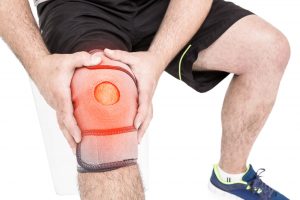 Many people struggle with joint pain throughout their lives, and this can be caused by many factors, but one of the most common causes of pain is arthritis.
Many people struggle with joint pain throughout their lives, and this can be caused by many factors, but one of the most common causes of pain is arthritis.
Arthritis is a type of joint degeneration whereby the protective cushion of the joint wears away, either due to repetitive use or due to an accident or injury. When this occurs, the joint will begin to grind, bone on bone, causing inflammation and painful symptoms in the joint.
The most common joints affected by this are the knees and the hips, although other areas of the body also can experience the same type of effects. Knee and hip pain eventually may require joint replacement surgery.
Joint replacement surgery is a type of orthopedic surgery in which a dysfunctional joint surface that has been damaged is replaced with an artificial surface. A physician typically recommends this when other treatments have not been successful in alleviating symptoms.
Other treatments could include activity modification, medications or injections. It is likely that with the other treatments you would see a physical therapist to attempt to improve the function of the joint, as well. If these treatments were ineffective, a replacement surgery would likely be recommended.
Following any surgery, you are likely to experience post operative pain, swelling and some limitations in your ability to complete activities, such as walking, running or moving your leg due to these symptoms. Typically, these are temporary symptoms, and will begin to improve within a few weeks of your surgical date.
The use of ice to help control pain and swelling, as well as exercises given at the hospital, will be integral to your recovery over the first few days. Your surgeon most likely will refer you to physical therapy, whether in a home-based environment or to an outpatient clinic.
During physical therapy, you will complete exercises designed to improve your strength and mobility, improve your ability to walk independently, and reduce swelling and painful symptoms. Most importantly, the goal of the surgery and therapy is to get you back to doing the activities you love, and with less pain than you had prior to the surgery. Many people are able to return to hiking, biking, swimming, tennis and many other activities that are very important to their well-being.
Spooner Physical Therapy, in North Mesa, is located at 6824 E. Brown Road. To learn more, call (480) 924-5514, or visit spoonerpt.com/locations/north-mesa.

